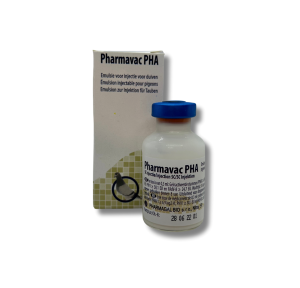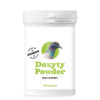
PHA 3-in-1 Vaccine: The Ultimate Protection for Your Pigeons
Keeping pigeons healthy, strong, and free from disease is every breeder’s top priority. Whether you raise pigeons for racing, breeding, or exhibitions, ensuring their immunity against deadly viruses is crucial. Pigeons are constantly exposed to harmful pathogens through contact with other birds, contaminated surfaces, food, and water. This makes vaccination an essential part of pigeon care. The PHA 3-in-1 Vaccine is a game-changer, offering protection against three of the most dangerous viral threats—Paramyxovirus (PMV1), Herpesvirus (PHV1), and Adenovirus Type 8 (AdV8).
Without proper vaccination, your pigeons are at risk of severe infections that can spread rapidly, weaken the flock, and result in significant losses. By understanding the benefits, myths, and best practices of pigeon vaccination, you can make an informed decision that safeguards your birds and optimizes their performance.
Why Vaccination is Non-Negotiable for Pigeon Owners
Pigeon diseases can be devastating and fast-spreading. A single infection can quickly turn into a full-blown outbreak, wiping out entire lofts. While maintaining hygiene, providing proper nutrition, and ensuring good ventilation help reduce disease risks, they are not enough to prevent viral infections. The only reliable way to protect your pigeons is through vaccination.
The PHA 3-in-1 Vaccine is specially formulated to boost the immune system before exposure to these dangerous viruses. This proactive approach keeps your birds safe, minimizes the risk of infections, and enhances their overall health and performance.
What Does the PHA 3-in-1 Vaccine Protect Against?
1. Paramyxovirus Type 1 (PMV1)
PMV1 is one of the most feared pigeon diseases due to its high mortality rate and neurological symptoms. Infected birds often display:
- Head tremors and loss of coordination
- Difficulty flying or standing
- Greenish diarrhea
- Increased water intake
- Paralysis in severe cases
PMV1 spreads through droppings, saliva, and contaminated surfaces, making it highly contagious. An outbreak in an unvaccinated loft can wipe out an entire flock in a matter of weeks. Vaccination is the only way to prevent this deadly disease.
2. Pigeon Herpesvirus (PHV1)
Herpesvirus primarily weakens the immune system, making pigeons vulnerable to secondary bacterial infections. Symptoms include:
- Respiratory distress (sneezing, nasal discharge, labored breathing)
- Eye infections and swelling
- Lethargy and lack of appetite
- Weight loss and reduced activity
PHV1 can remain dormant in pigeons and resurface during periods of stress (racing, breeding, or transport). Vaccination significantly lowers the risk of outbreaks, keeping pigeons resilient year-round.
3. Adenovirus Type 8 (AdV8)
Adenovirus primarily affects the liver and digestive system, leading to rapid health deterioration. Symptoms include:
- Lethargy and weakness
- Severe diarrhea and vomiting
- Sudden death in severe cases
Young pigeons are especially vulnerable, as their immune systems are still developing. Once symptoms appear, treatment options are limited. Vaccination is the best preventive measure.
Pros and Cons of Pigeon Vaccination
Pros of Vaccinating Pigeons
✅ Triple Protection in One Dose – Guards against PMV1, PHV1, and AdV8 with a single shot. ✅ Fast-Acting Immunity – Begins working within 10-14 days of administration. ✅ Long-Lasting Defense – Provides up to 1 year of immunity, reducing the need for frequent vaccinations. ✅ Prevents Costly Diseases – Saves money on expensive treatments, medications, and lost birds. ✅ Improves Racing & Breeding Performance – Healthy birds perform better, recover faster, and produce stronger offspring.
Cons of Vaccination
❌ Requires Proper Storage – Must be stored between 2°C and 8°C and never frozen. ❌ Not a Cure for Active Infections – Vaccination is preventive, not a treatment. Sick pigeons should not be vaccinated.
Common Myths About Pigeon Vaccination
🚫 “My pigeons are healthy, so they don’t need vaccines.” ✅ Even healthy pigeons can be exposed to viruses at races, exhibitions, or when new birds are introduced. Prevention is always better than treatment.
🚫 “Vaccines make pigeons weak.” ✅ The PHA 3-in-1 Vaccine is tested for safety and does not impact racing performance. A mild reaction is normal and temporary.
🚫 “Natural immunity is better.” ✅ Natural infection can be fatal or leave pigeons with lifelong health problems. Vaccination provides controlled immunity without the risks.
How and When to Vaccinate Your Pigeons
Vaccination Schedule
- Young Pigeons: First dose at 5 weeks old, booster 3-4 weeks later.
- Adult Pigeons: Vaccinate at least 14 days before races, breeding, or exhibitions.
- High-Risk Lofts: Revaccinate twice a year for maximum protection.
Dosage & Administration
- 0.3 ml per pigeon
- Administer subcutaneously (under the skin) or intramuscularly (into the breast muscle)
- Use a sterile syringe and follow proper vaccination techniques
Storage & Handling
- Store between 2°C and 8°C
- Do not freeze
- Protect from direct sunlight and frost
Why Top Breeders & Racers Trust the PHA 3-in-1 Vaccine
Stronger Breeding Success
- Higher hatch rates with fewer embryo losses
- Healthier chicks that grow quickly
- Improved fertility in breeding pairs
Peak Racing Performance
- Higher stamina & endurance
- Faster post-race recovery
- Lower risk of illness after competitions
Saves Time & Money
- Avoids costly treatments & lost birds
- Prevents disease outbreaks in lofts
- Ensures consistent racing & breeding schedules
Final Thoughts: Protect Your Flock Today!
Viral infections spread fast, and once an outbreak begins, controlling it is extremely difficult. The PHA 3-in-1 Vaccine provides a long-lasting shield against the three most dangerous pigeon diseases. Don’t wait until it’s too late—vaccinate today to ensure a healthier, stronger flock!
✅ Prevention is always better than cure! ✅ Ensure your pigeons stay race-ready, healthy, and strong. ✅ Order the PHA 3-in-1 Vaccine now and give your pigeons the protection they deserve!
“Until Next time Keep Them Health And Flying”


